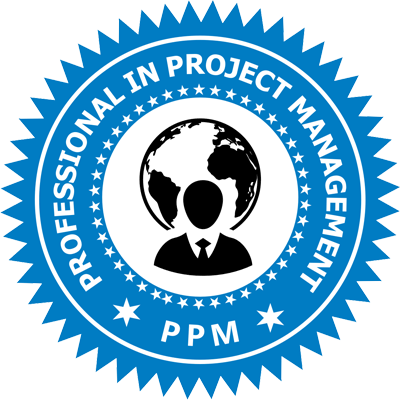Professional in Project Management (PPM)
Exam Code: PPM-001

Projects and project management has become the foundation for success in the public and private sectors. Enterprises achieve their goals through projects and effective project management. Successful project management requires achieving the scope (e.g., intended result), cost and schedule. In addition, the increasing complexity of work and demands for “more with less” place special demands on the project manager. These programs go beyond the “What is project management and practices” to providing practical “How To” guidance, tools and techniques, and processes to implement in today’s working world.
The Professional in Project Management (PPM)™ certification comprises of project management modules including – how to plan, execute, control and complete projects. The core focus on key trends in managing projects and demands on the project managers, the PPM™ project is very useful for project schedules, develop project measures and approaches to project control; and how to develop, lead and motivate project teams.
The Professional in Project Management (PPM)™ is a demonstration by an independent third party that standard requirements of knowledge and experience have been met that are recognized throughout the business community.
The Professional in Project Management (PPM)™ shows that you have pledged time, energy and effort to the project management profession. This overt evidence of a commitment to the profession can lead to opportunities in the corporate domain, increased responsibilities and a growth in earnings.
While most project managers obtain a great deal of project management knowledge and experience through on the job training, a certificate of Professional in Project Management (PPM)™ professional body of knowledge invariably leads to an assimilation of new knowledge and technique.
By earning the Professional in Project Management (PPM)™ appellation, professionals boost their self-confidence and gain the respect and recognition of their peers.
E-Course Duration: 45 to 50 Hours
e-Competence Framework (e-CF)
The mapping of this certificate against the e-Competence Framework. To know more on e-Competence Framework (e-CF) visit, ECF





